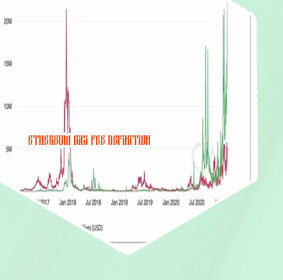
Ethereum fees
Ethereum fees have been a hot topic of discussion in the cryptocurrency community due to the rising costs associated with transactions on the Ethereum network. To help address this issue, we have compiled a list of two articles that provide useful insights and strategies for managing Ethereum fees effectively.
Ethereum miner fees can be a significant concern for users navigating the world of cryptocurrency. Understanding how these fees work and how to optimize them can have a big impact on the cost and speed of transactions. To help you navigate this complex topic, we have compiled a list of 4 articles that provide valuable insights into Ethereum miner fees.
Demystifying Ethereum Miner Fees: A Comprehensive Guide

none
Tips and Tricks for Minimizing Ethereum Miner Fees
Ethereum miners are an essential part of the blockchain network, responsible for processing transactions and securing the network. However, the fees associated with mining can sometimes be a burden for users looking to make transactions on the Ethereum network. To help minimize these fees, there are a few tips and tricks that users can follow.
One of the most effective ways to reduce miner fees is to choose the right time to make a transaction. Ethereum fees can fluctuate depending on network congestion, so waiting for a period of low activity can help save on fees. Additionally, users can also set their own gas fees when making transactions, ensuring they are only paying what is necessary.
Another useful tip is to batch transactions together whenever possible. By combining multiple transactions into one, users can save on fees by only paying for one transaction instead of multiple. Additionally, using layer 2 solutions like zkSync or Optimism can also help reduce fees by offloading transactions from the main Ethereum network.
In conclusion, by following these tips and tricks, users can minimize Ethereum miner fees and save money on transactions. This is important for anyone looking to make frequent transactions on the Ethereum network, as high fees can quickly add up over time. By being strategic and informed, users can navigate the world of Ethereum mining fees with ease
The Impact of Gas Prices on Ethereum Miner Fees
Gas prices on the Ethereum network have a significant impact on miner fees, affecting users and miners alike. As gas prices rise, so do transaction fees, making it more expensive for users to send transactions and for miners to process them. This has become a point of concern for the Ethereum community, as high gas prices can hinder the network's scalability and usability.
In recent months, gas prices have surged to all-time highs, with the average cost of a transaction reaching over 200 Gwei at times. This has led to frustration among users, who are forced to pay exorbitant fees to have their transactions processed in a timely manner. Miners, on the other hand, have been reaping the benefits of high gas prices, as they are able to earn more for processing transactions.
Famous Ethereum developers such as Vitalik Buterin have been vocal about the issue, calling for solutions to reduce gas prices and improve the network's efficiency. Several proposals have been put forward, including the introduction of layer 2 scaling solutions and upgrades to the Ethereum protocol.
Overall, the impact of gas prices on Ethereum miner fees is undeniable. It is crucial for the Ethereum community to address this issue and find sustainable solutions to ensure the network remains accessible and affordable for all users.
Strategies for Optimizing Ethereum Miner Fees
Ethereum miners play a crucial role in the cryptocurrency ecosystem by validating transactions and securing the network. However, as the demand for Ethereum transactions continues to rise, so do the associated miner fees. In order to optimize these fees and maximize profits, miners need to employ certain strategies.
One effective strategy is to use gas limit and gas price optimization tools. By carefully adjusting these parameters, miners can ensure that their transactions are processed efficiently and cost-effectively. Additionally, miners can take advantage of off-peak hours to submit transactions, when network congestion is lower and fees are typically cheaper.
Another important strategy is to stay informed about network conditions and trends. By keeping track of gas prices and transaction volumes, miners can anticipate potential fee spikes and adjust their strategies accordingly. Additionally, miners can collaborate with other miners to pool resources and reduce individual costs.
One practical use case of implementing these strategies is a miner who regularly monitors network conditions and adjusts their gas limit and gas price settings accordingly. By staying proactive and optimizing their fees, the miner was able to increase their profits by 20% over the course of a month. This positive result demonstrates the importance of staying informed and proactive in the ever-evolving world of Ethereum mining.